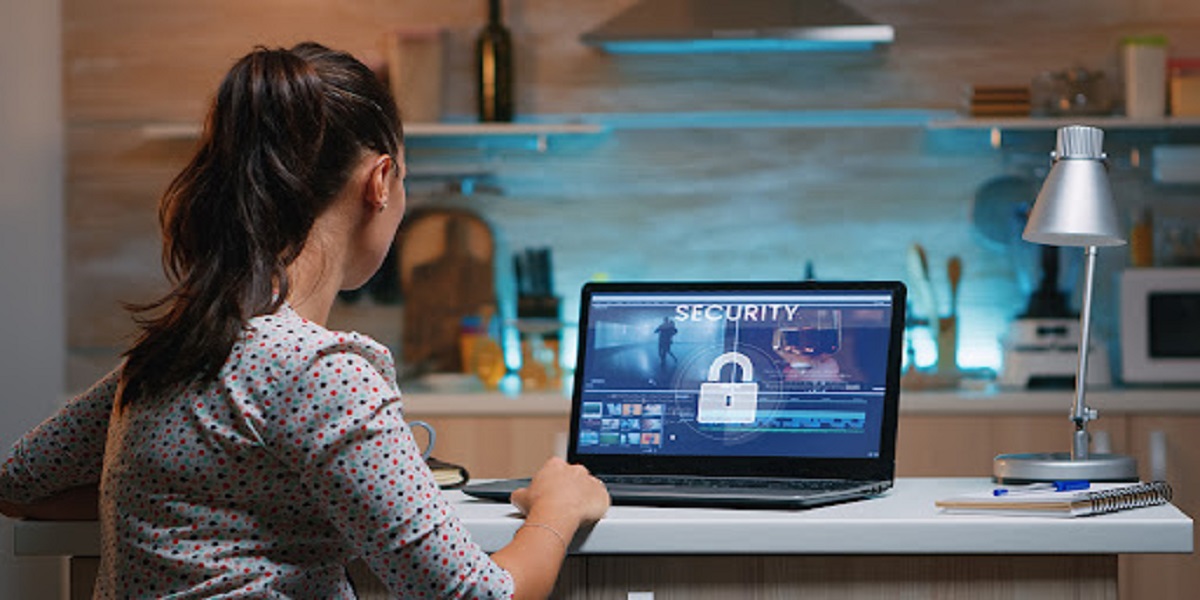
6 Ways to keep Employer Data Secure when Working Remotely
- By Navya
- 15-10-2022
- Misc
Post-COVID, remote working models have become exceedingly commonplace among many companies. Despite facing some friction at the beginning of the pandemic, companies have adapted to these models and structured their workflow around them quite seamlessly, and plan to remain so for a foreseeable future. In fact, Upwork estimates that nearly 23% of work teams and departments in the United States want to continue working remotely in five years - a 10% increase from before the pandemic began. Some reports go as far as to say that remote work in the United States would double permanently within the next five years.
With the growing popularity of remote working models, employers are constantly concerned about data security. When various enterprises are driven to adopt a remote working culture, the likelihood of cybercrime, data theft, data branching, or viral assault has greatly grown.
As a result, keeping vital information like passwords, financial records, business files, and employee information safe and secure is of the utmost importance for every business.
This concern has been amplified in the wake of the COVID-19 pandemic, which saw businesses shift to remote working models. Small and medium-sized enterprises were unprepared for the transition to a remote workforce.
While half of the business owners polled expressed concern about cybersecurity as they transitioned to work-from-home, over 40% were afraid that the present economy would prevent them from investing in extra cybersecurity methods.
With the economy uncertain and funds already stretched thin, cybersecurity and Information Technology concerns may not be at the top of a CEO's priority list. Many enterprises are already reducing IT staff and reallocating IT budgets to meet other business-related expenses. This leaves SMBs vulnerable to breaches.
Role of Managed Security Service Providers
MSSPs are concerned about providing network, application, infrastructure, and security services to clients through continuous and frequent support and active management on their premises, in their MSSP's data center (hosting), or in a third-party data center.
It is clear to MSSPs that cybersecurity dangers vary when enterprises use remote workers. It might be difficult to persuade enterprises to safeguard their remote workers. Remote employment also pushes employees to use a larger variety of technologies, which broadens the attack surface for hackers to exploit.
There are some obvious ways to ensure employer data security while working remotely, such as not using public Wi-Fi networks, changing passwords regularly, using encrypted devices, etc. These steps, however, may not be all it takes to stop cyberattacks.
Here are some not-very-obvious cybersecurity measures that managed it services provides for remote working enterprises while keeping their productivity intact:
1. Security Operations Center (SOC)
A SOC, whether in-house or remote, is critical to enhancing an enterprise's security posture. This service acts as a central point for monitoring and evaluating every event that occurs within an enterprise's infrastructure. A SOC enables the IT staff to safeguard enterprise assets including intellectual property and personnel data.
Because a SOC monitors the network 24 hours a day, system users can analyze and respond to any cyberattacks on the network at any time. This ongoing monitoring and analysis of processes and technological solutions guarantee that accidents are discovered and minimized as soon as possible.
MSSPs can secure your customers' assets, ensure regulatory email compliance, avoid network and device invasions, and mitigate the effects of an attack by providing a SOC team.
2. Zero-Touch Deployment of Secure WiFi Points
Device provisioning is a critical challenge for MSSPs looking to provide a safe, contemporary network to remote workers. When a zero-touch network is installed, devices may be delivered with settings, configurations, and applications automatically provided or managed without the need for an IT manager or MSSP to enter a remote worker's house.
MSSPs provide cross-platform integration and centralized administration of wireless solutions with centralized management and a uniform security platform, substantially simplifying how partners acquire, implement, and administer Wi-Fi networks for remote employees.
3. Password Management
With Password Management software, MSSPs help businesses adopt a zero-trust approach to enterprise security. Essentially, a password manager generates passwords at random and securely saves all of the enterprise passwords. Employees will no longer have to fight with remembering all of their many passwords for various systems, and the data will be protected at the same time.
Multi-factor Authentication is another protective measure that your MSSP may install. This is especially useful for remote employees who must manage VPNs, Customer Relationship Management (CRM) systems, corporate social media, and other readily compromised apps.
4. VPNs
A virtual private network (VPN) allows users to connect to another network securely using an encrypted Internet connection. Everyone should utilize a VPN for both personal and professional reasons. The advantages range from high-tech to the general user.
Over time, VPN functionality has been standardized and supported by the majority of operating systems, with comprehensive integration to make it easier for the end-user to enable, administer, and maintain security.
Previously, the major use case for a VPN was to circumvent regional limitations while streaming music and video. Furthermore, business VPNs guarantee that remote workers may connect to the enterprise's network, access critical data, and safeguard secret data.
5. Encryption Software
Encryption software is another excellent method of data security. If the device is lost or stolen, encryption software can secure firm data by preventing unauthorized users from accessing it. Most businesses already have anti-spam filters in place, but in an era where social engineering methods are becoming more complex, full email security and encryption are required.
Every enterprise, be it SMBs or Enterprises, requires comprehensive security that filters spam, malware, phishing attacks, and other threats. Incoming emails aren't the only thing to worry about when it comes to email security. Outgoing email is also a source of worry.
MSSPs must be able to prevent users from sending spam and malware accidentally, as well as enforce sending restrictions to avoid data breaches. Employees must occasionally convey sensitive material through email. MSSPs protect such information with encryption technology, which ensures that only the intended receiver sees the communication.
Similar to email encryption is technology that allows for the secure sharing of business data. Employees will be able to effortlessly exchange huge files and collaborate without the fear of catching a virus or malware thanks to secure file transfer technology.
MSSPs provide a personalized experience by allowing users to adjust sharing links and tailor invites. Each sender is additionally verified to offer the highest level of enterprise security.
6. Firewalls and Antivirus Software
To ensure data security, all remote employees must have up-to-date firewalls, antivirus software, and anti-malware on all of their devices. Along with computers, any other devices used to work or access data, such as cell phones and tablets, must be updated.
Many businesses also desire the option to remotely erase devices if they are lost or stolen. MSSPs provide mobile device management services to meet all of these needs. As a result, remote workers can continue to use their own devices while the enterprise's data is kept secure.
Role of Employees
Even with all the above cybersecurity measures, enterprise networks can never be fully impenetrable. As a result, Enterprises must educate and train every employee of the remote workforce on the essentials of data security and how everyone is accountable for securing it.
Employees are the first line of defense of enterprise security, and they require up-to-date knowledge of security measures. They must also begin and maintain particular processes and procedures to increase data security inside an enterprise. Every significant piece of information, such as private employee files, client information, protected intellectual property, ongoing project work, and so on, must be handled with care.
MSSPs provide IT Infrastructure Consulting Services which help enterprises establish a data security system and provide appropriate training to their workforce on ways to ensure cybersecurity.
Conclusion
Data security is always critical, and remote working has further increased the need for data security measures and procedures. Because the majority of workers work remotely, they may require assistance from their enterprise to ensure that these safeguards are installed on their devices. MSSPs have thus become essential for providing essential cybersecurity services to enterprises while allowing them to keep their employees safe and productive all the same.
Recent blog

Crafting Eye-Catching Instagram Reels In Just 9 Easy Steps
Social Media | 25-04-2024.png)
Boost Sales and Conversions with Shopify's New AI-Powered Semantic Search
E-commerce | 24-04-2024




